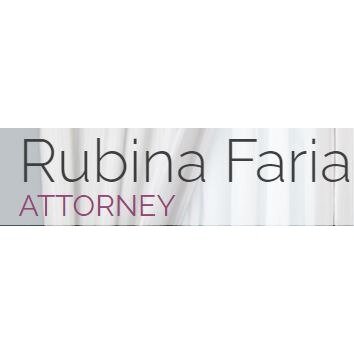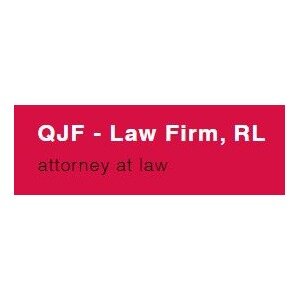Best Faith-Based Law Lawyers in Funchal
Share your needs with us, get contacted by law firms.
Free. Takes 2 min.
List of the best lawyers in Funchal, Portugal
About Faith-Based Law Law in Funchal, Portugal
Faith-Based Law in Funchal, Portugal, encompasses legal frameworks where legislation intersects with religious principles. While Portugal is a secular state, the intersection of law and religion can arise in matters such as marriage, divorce, inheritance, education, and cultural practices. In Funchal, as part of the autonomous region of Madeira, there is a unique blend of cultural influences that can affect the practice and interpretation of Faith-Based Law.
Why You May Need a Lawyer
People may require legal assistance in Faith-Based Law for a variety of reasons. Common situations include disagreements that arise from religious-based marriage contracts, custody issues where religious upbringing is a factor, inheritance disputes influenced by religious laws, and conflicts relating to religious freedoms and practices in public and private settings. Lawyers specializing in this field can provide guidance on how to navigate these issues within the framework of local and national laws.
Local Laws Overview
The legal system in Funchal operates under the broader Portuguese legal framework, which recognizes freedom of religion but maintains a secular stance in government. This means that while individuals are free to practice their faith, legal disputes must be resolved in accordance with national laws. Key aspects include the recognition of religious marriage ceremonies, considerations of religious customs in estate planning, and the protection of religious freedoms as guaranteed under the Portuguese Constitution.
Frequently Asked Questions
1. What is the role of religion in Portuguese law?
Portugal is a secular country, but it respects religious freedom and incorporates religious considerations where they intersect with civil law.
2. Can religious marriages be recognized legally in Funchal?
Yes, religious marriages can be recognized legally, but it is necessary to have them registered with the civil authorities to be valid in the eyes of the law.
3. How does inheritance work under Faith-Based Law?
While Portuguese civil law governs inheritance, faith-based considerations can be crafted into wills and estate plans, provided they don’t contravene mandatory legal provisions.
4. Are there specific laws about religious attire in Funchal?
There are no specific laws prohibiting religious attire in Funchal; people are free to display religious symbols and attire respecting public order and safety.
5. How are religious disputes typically resolved?
Religious disputes may be resolved through mediation, or through the civil court system, depending on the nature of the dispute and parties involved.
6. What rights do parents have regarding religious education for their children?
Parents have the right to educate their children in accordance with their faith, but it must align with national educational standards.
7. Can employers impose restrictions on religious practices at work?
Employers can impose restrictions for security and operational reasons, but must avoid discrimination and reasonably accommodate religious practices when possible.
8. Is it possible for religious organizations to become legal entities in Funchal?
Yes, religious organizations can register as legal entities, provided they meet the requirements set out by Portuguese law.
9. How does faith-based arbitration work in Funchal?
Faith-based arbitration is permissible, but the decisions must comply with Portuguese legal standards to be enforceable.
10. Can personal status be governed by religious laws?
Personal status issues, like marriage and divorce, must adhere to civil law, but religious customs can be acknowledged within those boundaries.
Additional Resources
For further assistance, individuals may seek help from the Funchal City Council, which provides civic information. The Catholic Church, being predominant, offers guidance on faith-based issues, as well as the Portuguese Bar Association, which lists qualified lawyers experienced in Faith-Based Law.
Next Steps
If you need legal assistance in Faith-Based Law, it's advisable to consult with a lawyer who specializes in this area. Begin by gathering all relevant documentation related to your case. Then, arrange consultations with legal experts to discuss your options. They can help you understand how local and national laws apply to your situation and guide you toward a resolution that respects both your legal rights and religious beliefs.
Lawzana helps you find the best lawyers and law firms in Funchal through a curated and pre-screened list of qualified legal professionals. Our platform offers rankings and detailed profiles of attorneys and law firms, allowing you to compare based on practice areas, including Faith-Based Law, experience, and client feedback.
Each profile includes a description of the firm's areas of practice, client reviews, team members and partners, year of establishment, spoken languages, office locations, contact information, social media presence, and any published articles or resources. Most firms on our platform speak English and are experienced in both local and international legal matters.
Get a quote from top-rated law firms in Funchal, Portugal — quickly, securely, and without unnecessary hassle.
Disclaimer:
The information provided on this page is for general informational purposes only and does not constitute legal advice. While we strive to ensure the accuracy and relevance of the content, legal information may change over time, and interpretations of the law can vary. You should always consult with a qualified legal professional for advice specific to your situation.
We disclaim all liability for actions taken or not taken based on the content of this page. If you believe any information is incorrect or outdated, please contact us, and we will review and update it where appropriate.










